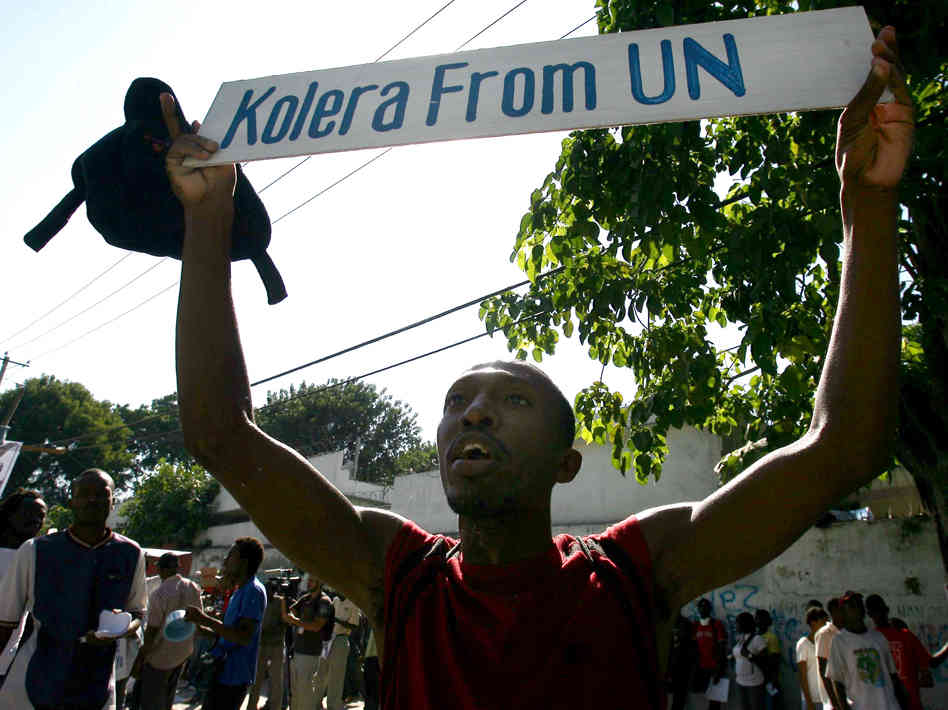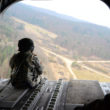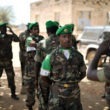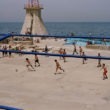(Source: NPR)
| Why has the United Nations had more than 8,000 men in Haiti since 2004? The answer has nothing to do with hurricanes or earthquakes. |
This is precisely what happened in 2010 when an Asian strain of vibrio cholerae, the bacteria responsible for the spread of cholera, entered the river through one of its tributaries as a result of the poor hygiene conditions at a UN peacekeeping base manned by Nepalese troops. The massive epidemic that followed came just months after the catastrophic earthquake that had destroyed part of the country in January of that year, leaving at least 230,000 mortal casualties.
Immediately after the quake, the world pleaded to help the devastated Caribbean country with millions and millions of dollars. In reality, however, the major contribution made by the outside world was the also disastrous epidemic that was to follow, for which the UN have subsequently refused to take full responsibility.
UN denial
When at the end of 2010 it became apparent that a rare cholera epidemic was taking hold in Haiti, the first evidence pointed to the UN Stabilization Mission that had been in Haiti since 2004. As soon as news broke, thanks to the efficient work of Jonathan Katz, an Associated Press journalist and an Al Jazeera crew who were among the first to point to the Nepalese base, a long sequence of denial and eschewing of responsibility ensued.
For months, UN officials refused to investigate, and did everything in their power to dampen inqueries into the source of the outbreak. When in May 2011 the UN was finally forced to investigate its likely responsibility, it reached the conclusion that a “confluence of circumstances” had led to the outbreak, and this in spite of admitting that it was almost certain that its Nepalese troops had been the originators.
Since 2011, denial has equated to the refusal to accept any responsibility for righting wrongs, and this in spite of the increasing numbers of Haitians affected by the epidemic that has already claimed more than 8,300 lives.
The epidemic has now spread to neighboring countries. Venezuela had its first reported cases in January 2011. Cuba has reported hundreds of cases since 2012, including three deaths. Mexico has also reported at least one death, and several other cases. Predictably, the Dominican Republic has been the most affected country after Haiti, with at least 453 people confirmed to have died of cholera since 2010.
Each and every one of these cases has been victim of the same strain of vibrio cholerae; a strain that had never affected any part of Latin America and the Caribbean previously. Not that such information has mattered to the UN, which until very recently has refused to meet with the victims and, more importantly, has decided to hide behind the cloak of diplomatic immunity to escape financial repercussions and international reprisals.
Failure to engage
It comes as no surprise that a group of Haitians has decided to sue the United Nations for engaging in “reckless and gross negligence and misconduct bringing cholera to Haiti.” It is also unsurprising that UN Secretary-General Ban Ki-moon has invoked legal immunity.
One could reasonably question if, after causing so much destruction, the UN should be more sympathetic. After all, just a few routine health checks would have shown that those Nepalese soldiers spent three months training at Panchkhal base in the Kathmandu Valley, where in August 2010 there had been, you guessed it, an outbreak of cholera.
Ban Ki-moon suggested that the UN has learned its lessons and is now fully involved in a fight to eradicate cholera from Haiti. Yet his failure to engage with those affected leaves much to be desired. More significantly, one wonders whether something similar is not about to happen whenever and wherever the next natural disaster takes place.
Money misspent
Which brings me to an issue that hasn’t been seriously questioned so far: why has the United Nations had more than 8,000 men in Haiti since 2004?
The answer, of course, has nothing to do with hurricanes or earthquakes. These troops landed there in 2004 after Haiti’s democratically elected president, Jean-Bertrand Aristide, was the victim of a coup d’etat that came only weeks after he had dared to demand from France, Haiti’s former colonial metropolis, the return of money paid by Haiti over more than 100 years as part of the treaty of 1825 that led to France’s recognition of Haiti as an independent state.
It was then that the troops, led by a Brazilian contingent, arrived to replace the French and US troops that had taken over after the coup in order to ensure that chaos did not ensued.
Over the years, their contribution to Haiti’s stability has been questioned time and again. It is also worth noting the approximate annual cost of keeping over 8,000 peacekeepers in the Western hemisphere’s poorest country is more than $570 million; an absurd amount if one considers the good that money could do for the Haitian people.
A way forward
UN troops are at least “an obstacle for democracy in Haiti” but more accurately their impact has been tragic. They been accused of rape, sexual exploitation, and murder, on top of other assorted brutal actions since they first arrived. Their legacy is one of death and sorrow, not one of help and recovery. Foreign aid up to now has not predominantly gone to the Haitian themselves, but to non-Haitian organizations.
Perhaps it is time for the UN to clean up its act. It could start by assuming full responsibility for all the grief it has caused, and by voluntarily paying out the $2.4 billion desperately needed to make improvements to Haiti’s water and sanitation infrastructure. Additionally, it should remove foreign troops once and for all, and re-invest that $570 million in the country’s infrastructure instead.
Only then will Haiti begin a clear path to recovery.
Manuel Barcia is Deputy Director at the Institute for Colonial and Postcolonial Studies at the University of Leeds in the United Kingdom. Follow him @mbarcia24.







0 Comments